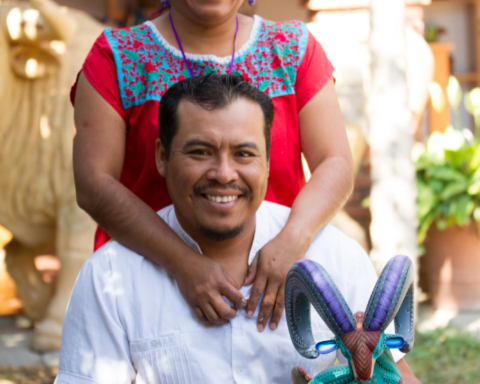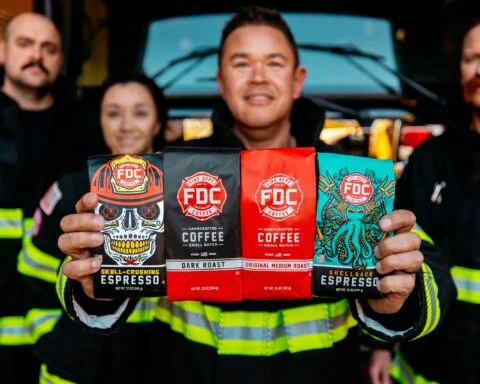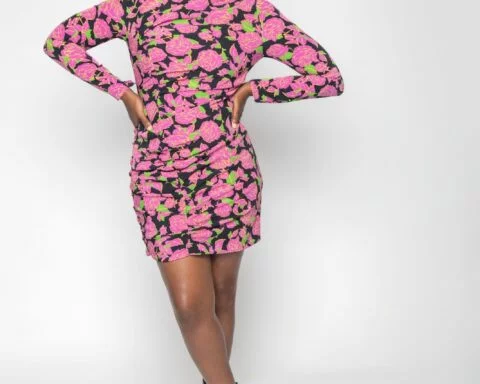Kampala is a cacophony of life: the whir of boda drivers carrying commuters on motorbike across the city, the laughter of children running through the streets, the tutting of chickens meandering narrow village lanes.
Within a brick house nestled down one of those city lanes sits a collective of a dozen women, their babies crawling at their feet as they roll beads and assemble them into jewelry. It’s a humble workshop, but cheery, with high ceilings and wide windows.
The income they earn here empowers them to feed their families, educate their children, and rise out of poverty.
With a steady, reliable paycheck, they can allocate funds to savings, medical expenses, and long-term investments, rather than saving every shilling for food and other necessities, unsure of when their next payout will come. By making jewelry for sale in an international marketplace, their lives – and the lives of their children – change, stopping generational poverty in its tracks.
This is the goal for Tuli, an ethical fashion brand founded in 2014 by Megan Kitt. It started in Uganda and grew to Kenya, working with artisans living in poverty to bring them sustainable jobs that change their lives.
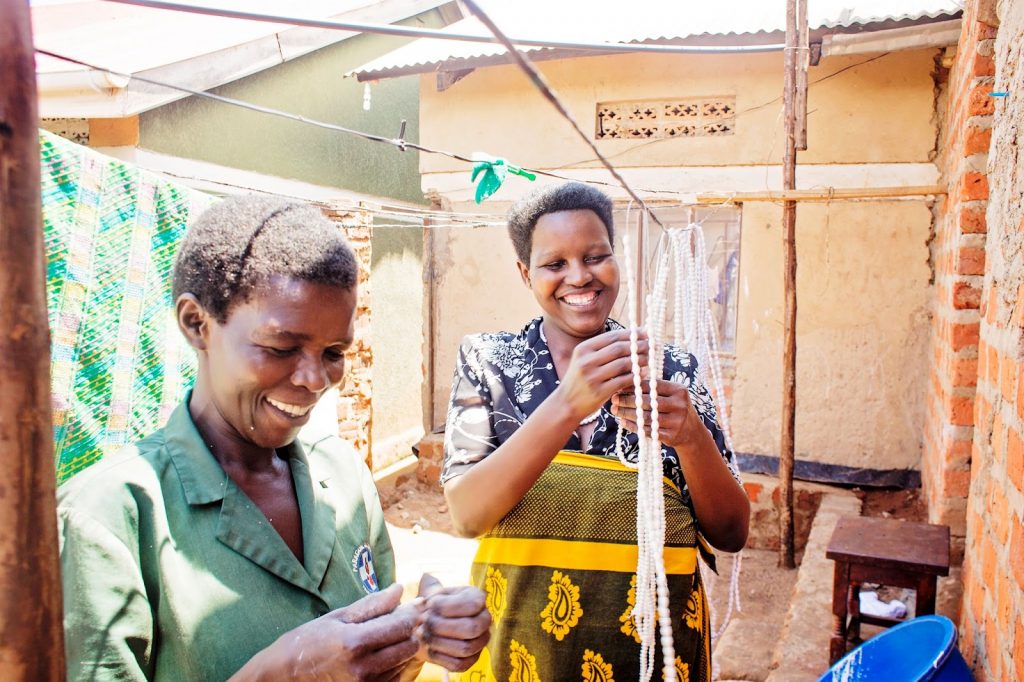
A need for work
Kitt started her career as a fashion model, working in both major US and international markets. After that, she became a journalist and eventually found herself in Uganda, writing about land disputes and mental health in developing countries.
Her motivation was always to do something that impacted the world positively. She was drawn to journalism because she hoped that she could tell people’s stories and prompt people to help, but found herself overworked and fighting a culture where people don’t consume the news.
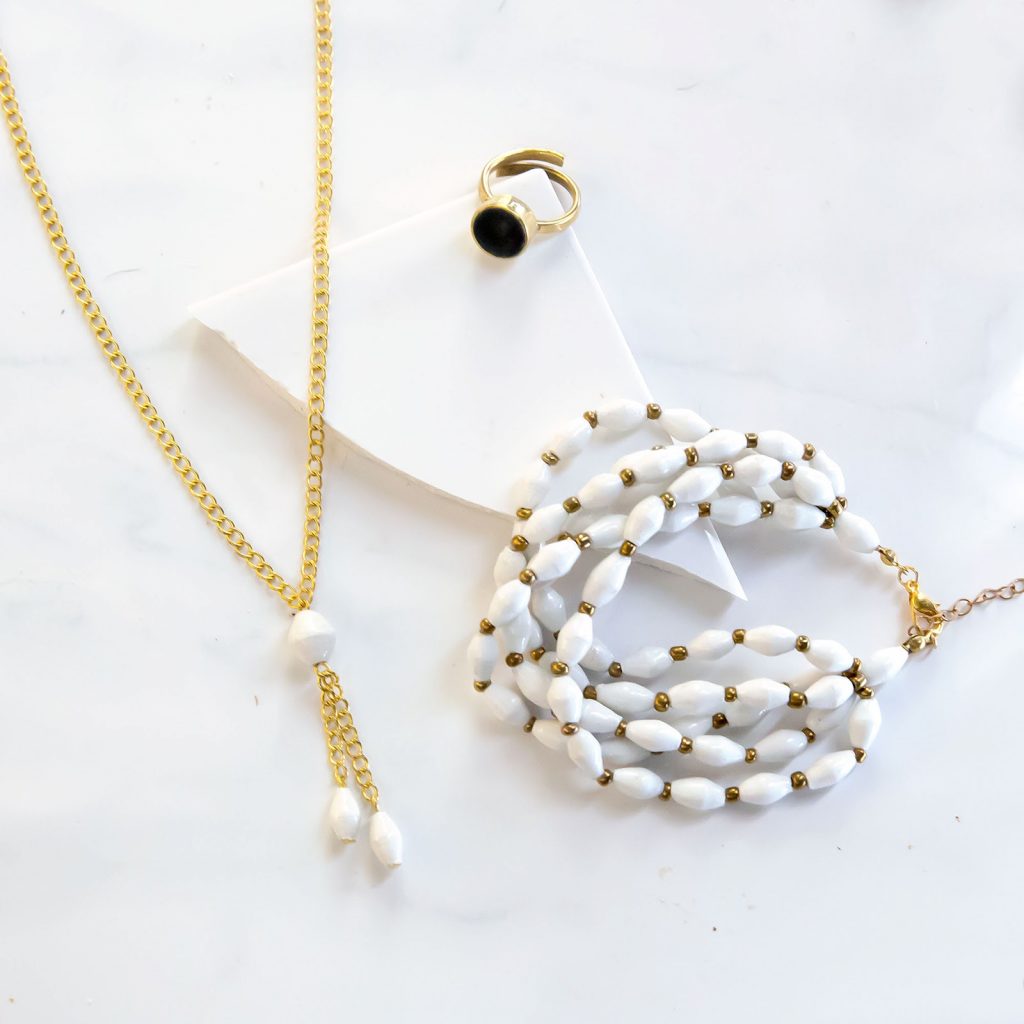
“I was news editor for a small city’s newspaper, and I’d run into people around town who would say, ‘Haven’t you heard of this? Why aren’t you covering it?’ and I’d say, ‘That’s the front-page story for today’s paper,’” Kitt said. “While struggling to be heard in an information-saturated world, I started to feel like I was writing about people who do things rather than doing things myself.”
Taking an assignment to Uganda was a dream come true, though. She’d long been interested in writing about extreme poverty and finding ways to fight it.While in Kampala, she spent her days talking to people living in the slums. More than anything, she said, people wanted jobs. “They wouldn’t ask me for money,” she said, “they’d ask me for help starting a business or trading with the US.”
Unemployment in Uganda is staggering, and about 88% of citizens live in poverty as of 2021. While well intended, aid efforts aren’t working, because they are only a temporary bandage to an enormous problem. Fair, living-wage jobs with safe working conditions would create sustainable change, Kitt reasoned.
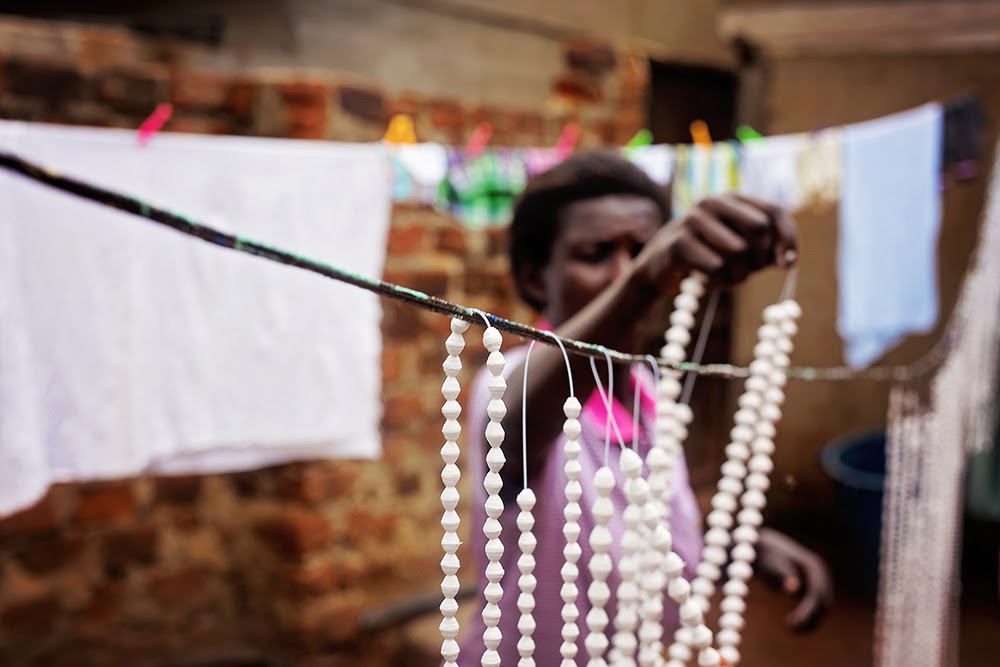
A common sight on Kampala’s streets is women selling colorful jewelry made from beads that are rolled from cardboard and paper salvaged from local dumps. It takes hours to cut the beads into thin strips, roll them tightly into beads, and string them into jewelry, and the women then carry them to marketplaces to try to sell. But buyers are few in Uganda, so the women are largely expending huge amounts of effort into a hope that they might make shillings here and there.
Kitt realized that while they had a skill, they had no access to a marketplace – but she did. Meanwhile, she learned from her time in the fashion industry of the terrible labor practices most brands use, with sweat shops and child labor being the norm, not the exception.
She partnered with a small group of women and created a small line of products she flew home with in her backpack. That’s how Tuli was born.
Challenges and growth
Every business has its own unique challenges, and Tuli is not unique in that regard. Ethical fashion, on paper, sounds simple enough: By paying those who make our garments fairly and ensuring safe working wages, costs to consumers increase only minimally. But for large companies churning out millions in sales annually, those small savings compound quickly, and companies are hesitant to change.
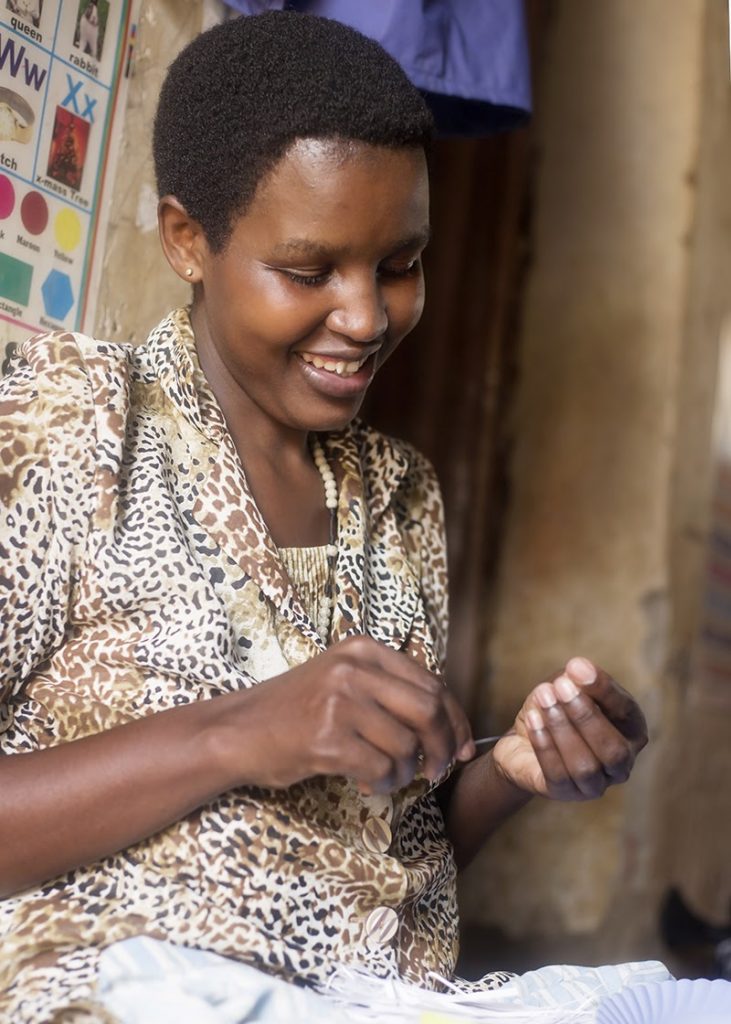
The industry is set in its ways, and the cheapest way to produce is paying poverty wages and cramming workers into unsafe factories.
For a brand like Tuli, competing with companies whose manufacturing is cheaper is arduous, especially as a new, unknown brand. “We’ve been building a brand through imagery,” Kitt said. “We put a lot into our photoshoots to prove we can exist among major players and to build credibility in the market.”
This is where her fashion background was of use. When she founded Tuli, Kitt’s peers were all professional models, and her friends posed for free. She enlisted the help of industry photographers for trade shoots, but, because of her journalism background, soon realized she could photograph her collection on her own.
“Streamlining in that way is probably one of the top reasons we were successful,” Kitt said. “We never could have afforded a professionally produced shoot – but we were able to fake it and carve out a position for ourselves in the industry by showing up on Tuli social media with strong images. Of course, I look at those early photos now and shake my head, we’ve definitely upped our game since then. But what we had was enough for us to start.”
Brand-building is still monumental in the fashion industry. Tuli focuses on showing up in the fashion world while using storytelling to share with consumers the impact their jewelry is having.
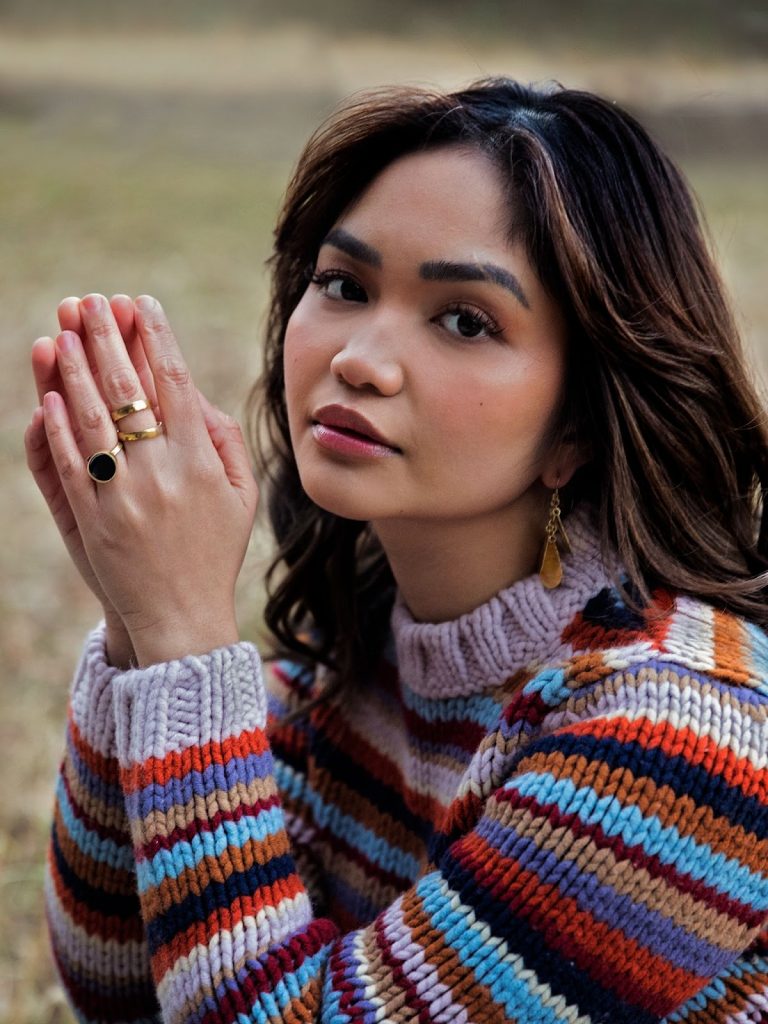
“It’s amazing to me how something as simple as jewelry can change people’s lives,” Kitt said. “I’ve watched it happen. End of the day, that’s the reason I started the brand. I wanted to help people, and by telling a story of change, we show our customers how they’re purchase really is helping people. Not a lot of brands can do that.”
Beyond that, supply chain has been a huge hurdle for the company. Manufacturing in East Africa rather than in a more traditional market, like China, means Kitt had to cobble together supply chains on her own.
“It was so disheartening,” Kitt said. “Trying to find high-quality chain was hard enough. But then finding enough to make even a few hundred necklaces? And then finding it again and again?”
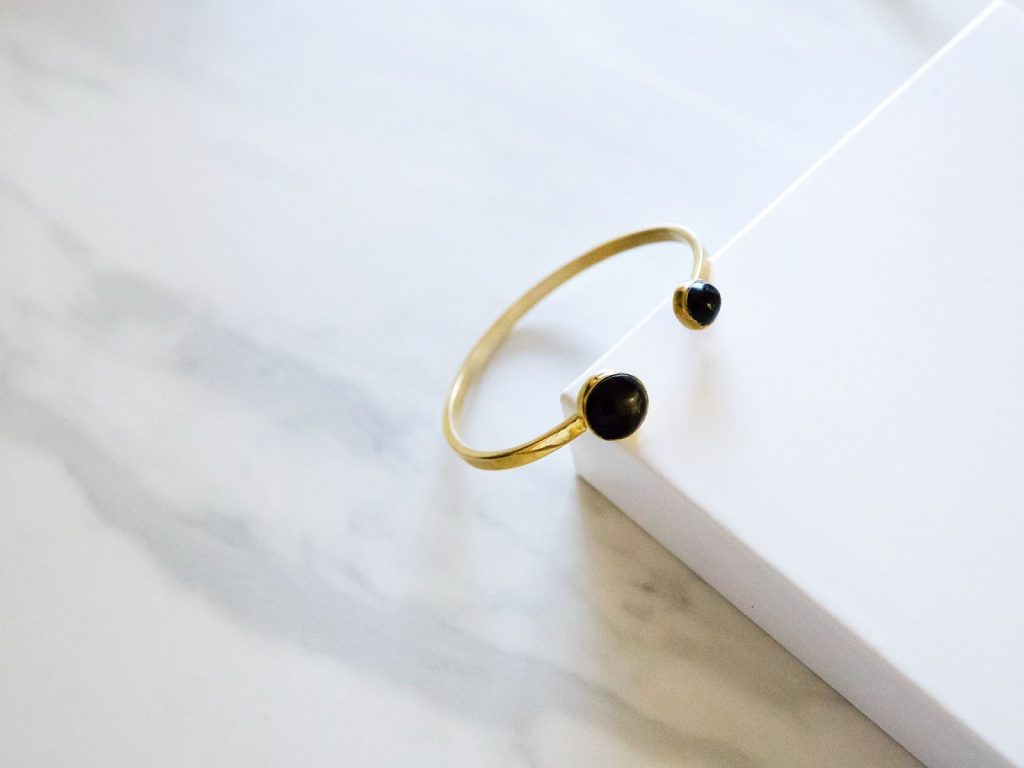
The only solution, Kitt said, was to wander the streets of Kampala (and later, when the company expanded, those of Nairobi) asking for leads. It took time for her to establish working relationships with suppliers, whose businesses are now also supported by Tuli. It’s not just the artisans making the jewelry who benefit from Tuli’s industry, Kitt said. Suppliers in the local economy also receive a boost.
Growth opportunity
Fashion is a grueling industry, and ethical fashion presents its own unique set of challenges, but the future looks bright for Tuli and other companies like it. Consumers are becoming increasingly aware of the negative social and environmental impact the fast fashion industry carries. Ethical fashion is the future, Kitt believes.
“At first, I had to explain to people why they should care about ethical fashion,” Kitt said. “Years later, most people are aware of the abhorrent labor practices that yield our clothes. Now, people just want different options.”
In 2020, during part of Tuli’s strategy to survive the pandemic’s sharp decline in retail and wholesale business, Kitt launched Tuli Studio, a service that provides white label manufacturing for brands who would like to use ethical production standards. More and more brands are reaching out, eager to access a workshop that employs fair labor practices.
“We started with jewelry, but that’s not the end game,” Kitt said. “My goal is to keep expanding and creating more jobs in East Africa. I hope to one day expand into garments as well.”
Persevere, persevere, persevere
Tuli’s growth was a marathon in a culture obsessed with the overnight success of start-ups. The first two years of its existence yielded low revenue, and Kitt still worked as a model to support herself as she grew it.
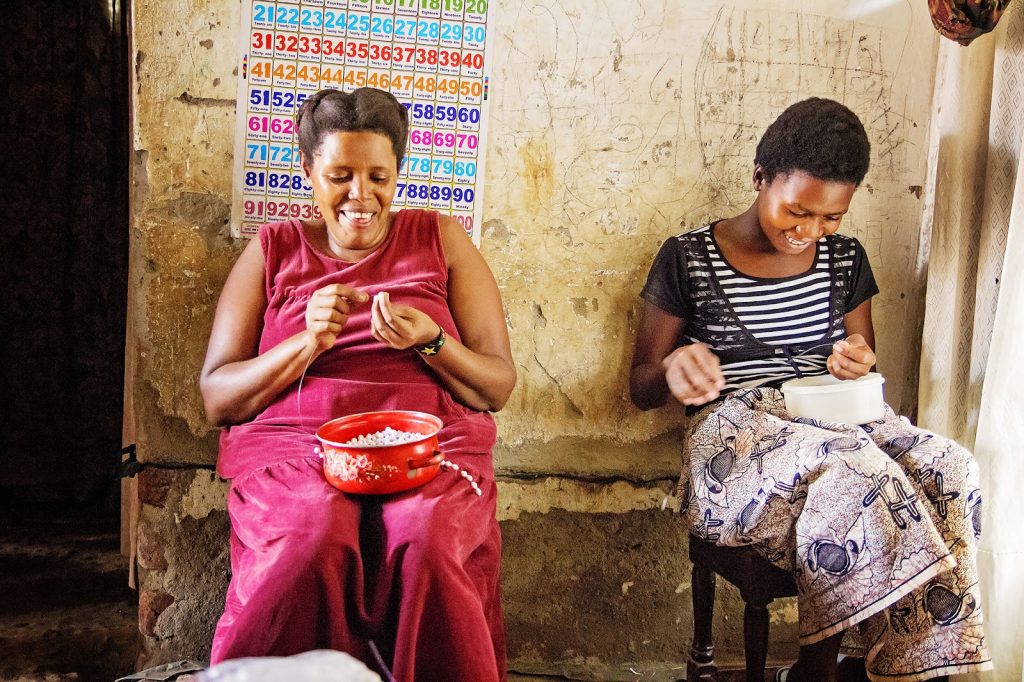
Not only did she have to build a brand and find customers in a crowded marketplace, but once she did, her production still had kinks, and at first, she couldn’t produce jewelry as fast as she sold it. It took two more trips to East Africa to solve that problem.
“I think the key difference between Tuli and similar brands that have failed,” Kitt said, “is that I was too stubborn to give up.”
Building a brand takes time. Kitt said that with each passing year, her company has more credibility in the fair trade space, and her reach – and consequently, her customer base – grows.
She suggests anyone trying to build a company persevere even if things don’t take off overnight.
“Obviously, you have to take a hard look at your business and constantly find ways to improve,” she said. “You can’t just keep doing the same thing blindly for years and wonder why you aren’t growing. I’m Tuli’s biggest critic and I’m constantly changing my approach. But – if I hadn’t kept pushing until we found our groove as a brand, I would have missed out on something pretty special.”
- How the Pec Deck Works Your Chest - April 19, 2024
- Homemade Eye Drops: Risks, Benefits, and More - April 19, 2024
- SMART TOOTHPICKS COMPANY - July 29, 2023




